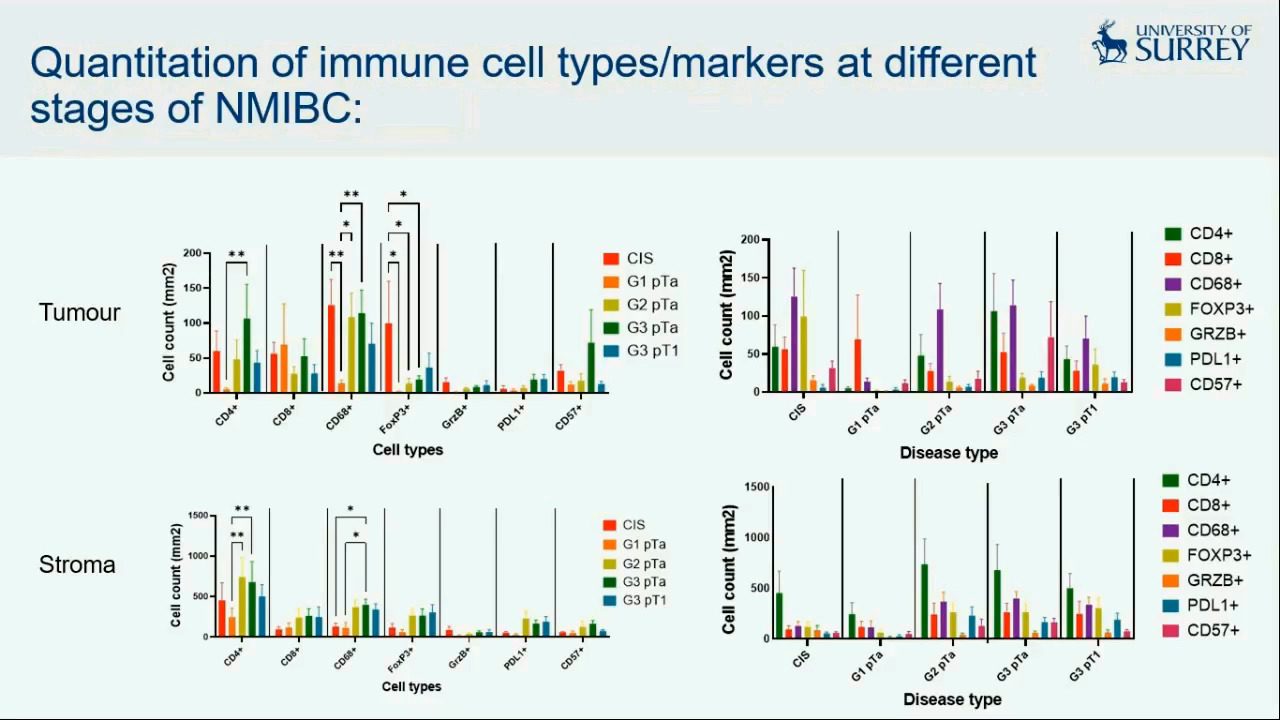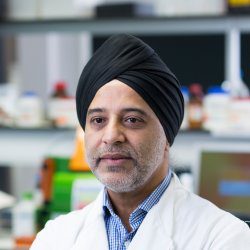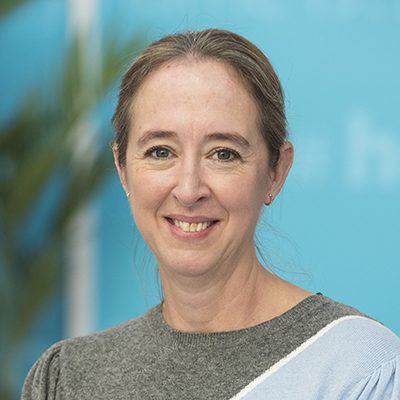Main Menu
We’ve rebranded some of our products, learn more ›
CODEX® is now PhenoCycler,
Phenoptics™ is now Phenolmager.
Understanding the immune landscape of non-muscle invasive bladder cancer (NMIBC) and its influence on BCG immunotherapy
December 1, 2022
Bladder cancer (BC) is the 10th most common cancer world-wide with an estimated 570,000+ people being diagnosed in 2020. The incidence, attributed morbidity and high treatment costs makes BC an important area of further research to improve therapies and patient quality of life. BCG is still one of the most successful cancer immunotherapies used as a standard therapy for high-risk NMIC. However, despite its anti-tumour efficacy, half of the patients eventually develop tumour recurrence, with 30% progressing to muscle invasive disease.
As the clinical outcome of cancer patients is highly dependent on the state of the tumour microenvironment (TME) there is considerable interest in understanding the role of the tumour immune microenvironment in disease progression in NMIBC and the mechanisms of resistance to BCG immunotherapy. The webinar will discuss the integrated use of pan-cancer gene expression analysis with Akoya Bioscience’s multiplexed immunofluorescence workflow on NMIBC FFPE tissues to find a predictive biomarker panel capable of stratifying patients who will benefit from BCG immunotherapy and to identify new targets for further investigation of therapeutic strategies for BCG-unresponsive tumours.
Attend this webinar to:
- An understanding of the clinical aspects of non-muscle invasive bladder cancer (NMIBC) and in particular the use of BCG immunotherapy as treatment for high-risk disease
- An understanding of the changes in immune microenvironment at different stages of non-muscle invasive bladder cancer
- The utilization of pan-cancer gene expression analysis and multiplexed immunofluorescence techniques on NMIBC and how this can be used to identify predictive biomarkers for response to BCG immunotherapy
Video

Speaker

Hardev Pandha
Professor of Medical Oncology, Consultant Physician in Medical Oncology
University of Surrey
University of Surrey
Biography
Prof Hardev Pandha is a clinician scientist and medical oncologist who graduated in medicine at the University of Birmingham. He trained in internal medicine and subsequently in medical oncology at the Royal Postgraduate Medical School at Hammersmith Hospital, London. He completed his PhD (Imperial College) in the Imperial Cancer Research Fund labs at the Hammersmith. He was a visiting fellow at Stanford University prior to completing his medical oncology training at the Royal Marsden Hospital, London. He was a senior lecturer in tumour immunology and medical oncology at St Georges, University of London in 2000 before being appointed Prof of Urological Oncology at the University of Surrey in 2006.
His areas of expertise include the management of patients with Urological cancers and malignant melanoma. He has a key interest in early phase clinical trials involving targeted agents and the translational aspects of novel therapies. His portfolio includes gene and viral therapy as well as immunotherapy and small molecule inhibitors. His laboratory interests reflect this and in particular a combination of novel and biological therapies with more conventional treatments. His lab team have evolved a robust infrastructure of patient sample procurement and biobanking for translational research.

Dr. Nicola Annels
Senior Research Fellow
University of Surrey
University of Surrey
Biography
Dr Nicola Annels obtained her PhD from the University of Birmingham, UK having studied the T cell responses to EBV infection in the group of Prof Alan Rickinson. She then took up a postdoctoral position within the Paediatric Department of Leiden University Medical Centre, The Netherlands where her main research focused on the homing of T cells involved in graft versus host disease following stem cell transplantation. During her time here she also dedicated a significant amount of her time to research into childhood Langerhans Cell Histiocytosis contributing to knowledge regarding the homing of the pathologic LCs, the pathology of the lesions and investigating possible genomic aberrations. After seven years working in the Netherlands Dr Annels returned to the UK where she took up the post of Senior Research Fellow, leading the immunotherapy research within the Oncology Group headed by Prof Hardev Pandha. This group has a sustained and proven track record in basic science and clinical translation in the fields of oncolytic virotherapy and cancer immunotherapy. Dr Annels has been involved in both the preclinical virotherapy research as well as the translational research associated with clinical trials using these novel agents. In addition, Dr Annels’s work focuses on understanding the tumour microenvironment and in particular the immune response to tumours.


